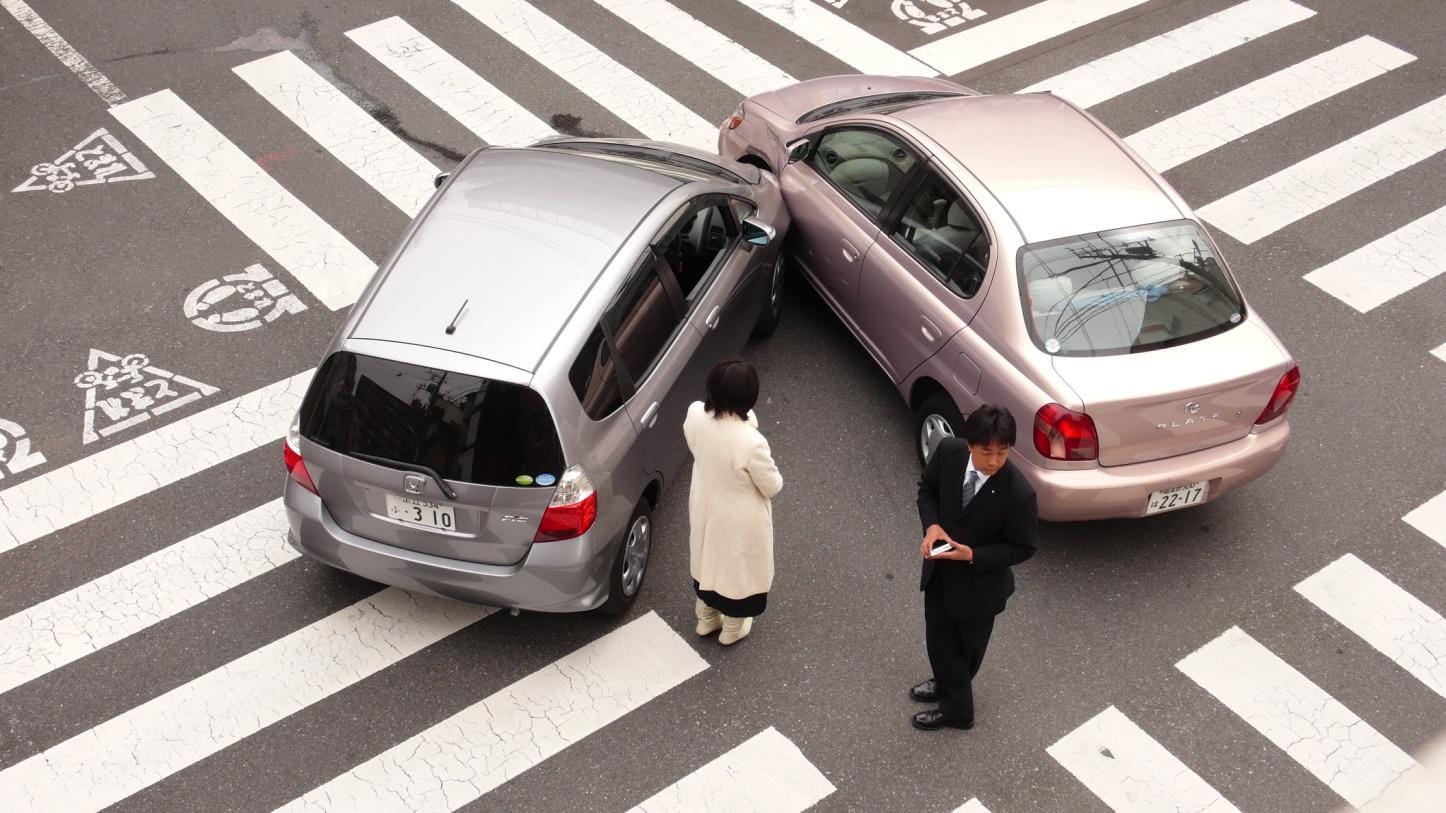
While cruising on a Nevada highway, out of the blue, you’re jolted. The vehicle behind doesn’t brake on time and rear-ends you. Such an accident can be both injurious and in the best case waste most of your day dealing with the aftermath, leaving you pondering, “Which insurance should I contact?” This article aims to steer you through the intricate realm of rear-end collisions law, offering insights on insurance, claims, and potential legal steps.
What to Do at the Accident Scene
The first step when involved in a rear-end accident is to ensure your safety and that of any passengers in your vehicle. Here’s a step-by-step guide on what to do at the accident scene:
Safety First: After the collision, move your vehicle to a safe location if it’s drivable. Turn on hazard lights and set up warning triangles or flares, if available, to alert other drivers.
Check for Injuries: Ensure everyone is safe, and if anyone is injured, call 911 immediately. Seek medical attention for any injuries, no matter how minor they seem.
Notify the Police: Call the police to report the accident. A police report can be crucial when determining fault and for insurance claims.
Exchange Information: Exchange contact and insurance information with the other driver involved. Gather their name, phone number, insurance company, policy number, and the make and model of their vehicle.
Document the Scene: Take photos of the accident scene, including damage to both vehicles, license plates, and the location of the accident. This documentation can be valuable when dealing with insurance claims and potential legal proceedings.
Obtain Witness Information: If there are any witnesses to the accident, collect their contact information. Their statements can be valuable in determining fault.
Avoid Admitting Fault: Do not admit fault or blame the other driver, even if you think you may have contributed to the accident. Determining fault is the job of the insurance companies and, if necessary, the legal system.
Determining Fault in a Rear-End Accident
Rear-end accidents often lead to a presumption of fault against the driver who rear-ended the other vehicle. However, this presumption can be challenged in some circumstances. It’s essential to understand the factors that may affect fault determination:
Circumstances: The circumstances leading up to the accident can influence fault. If you cut off the rear driver with insufficient signaling and space or abruptly stopped in front of another vehicle without warning and for no good reason, you might share some of the responsibility.
Uninsured or Injured Driver: If you are the uninsured or injured driver, fault may still be determined against the driver who rear-ended you. Nevada law generally places a greater responsibility on the following vehicle to maintain a safe following distance.
Essential Traffic Rules: If the driver who rear-ended you violated essential traffic rules, such as speeding or distracted driving, this can impact fault determination.
Nevada applies a modified comparative negligence system, which allows you to recover damages as long as your share of the fault is less than 50%. If you are determined to be 51% or more at fault for the accident, you cannot recover any damages.
Contact Your Own Insurance Company
After ensuring your safety and following the necessary steps at the accident scene, it’s time to consider insurance matters. You should contact your insurance provider as soon as possible, even if the accident was clearly the fault of the other driver. Here’s what you should do:
Notify Your Insurer: Contact your own insurance company and inform them about the accident. You will need to provide details such as the other driver’s insurance information, the police report number, and the accident’s location and time.
Review Your Coverage: Understand your own insurance coverage policy. This includes knowing whether you have medical payments coverage if you have a Nevada policy or personal injury protection (PIP) if you have an out of state policy and your policy’s coverage limits. Your medical payments or PIP coverage can help with immediate medical expenses, regardless of fault.
Claims Process: Your insurer will guide you through the claims process. They will help you collect the necessary documentation and explain how to proceed.
Contacting the Other Driver’s Insurance Company
In addition to notifying your insurance company, you should contact the other driver’s insurance company. Here’s how you can do this effectively:
Contact Information: Use the insurance information you collected from the other driver at the accident scene to reach out to their insurance company. They will guide you through the process of filing a claim.
Explain the Incident: When speaking with the other driver’s insurer, provide a clear and concise explanation of the incident. Stick to the facts and avoid any speculation or assumptions.
Collect Compensation: The other driver’s insurance should cover your vehicle repair costs, healthcare expenses, and other damages you may have incurred as a result of the accident. Be sure to gather and provide all necessary documentation to support your claim.
Filing a Claim and Seeking Compensation
Filing an insurance claim can be a complex process. To ensure you receive the compensation you deserve, consider the following tips:
Understand Your Coverage: Be aware of what your own insurance policy covers and the coverage limits. This knowledge can help you make informed decisions regarding your claim.
Seek Medical Attention: Even if you don’t initially feel seriously injured, it’s essential to seek medical attention. Injuries may become apparent later, and having a record of your medical examination can strengthen your case.
Collect Documentation: Keep a record of all expenses related to the accident, including medical bills, vehicle repair costs, and any other out-of-pocket expenses.
Cooperate with Your Insurer: Work closely with your insurance company to provide all necessary information. This includes answering their questions and providing documentation promptly.
Consider Legal Help: If you encounter difficulties in the claims process or face resistance from the other driver’s insurance company, consulting with an attorney experienced in car accidents can be an advantage. They can help protect your rights and negotiate on your behalf.
Dealing with Uninsured or Underinsured Drivers
If you find out that the other driver involved in the rear-end accident is uninsured or underinsured, your options may be limited. In such cases, you can turn to your own insurance policy’s uninsured or underinsured motorist coverage if you have it. This type of coverage can help cover your expenses when the responsible party lacks insurance or sufficient coverage to pay for your damages.

The Bourassa Law Group’s A-List Car Accident Attorneys Are Here For You!
Rear-end car accidents can be stressful and confusing, but understanding the steps to take after the accident is essential to protect your interests. Remember to prioritize safety, notify your insurance provider, and contact the other driver’s insurance company. Always gather and keep detailed documentation, seek medical attention if necessary, and cooperate with your insurer throughout the claims process.
In some cases, it might be necessary to seek legal assistance, especially if you encounter resistance from insurance companies or need help determining fault. An attorney experienced in car accidents can guide you through the process, helping you receive the compensation you deserve.
BLG’s team of the finest car accident lawyers can help you navigate the complexities of insurance claims and the law. We’re with you at every step of the way on your road to justice. Contact us today to book a free consultation call and take the first step to the compensation you deserve.





